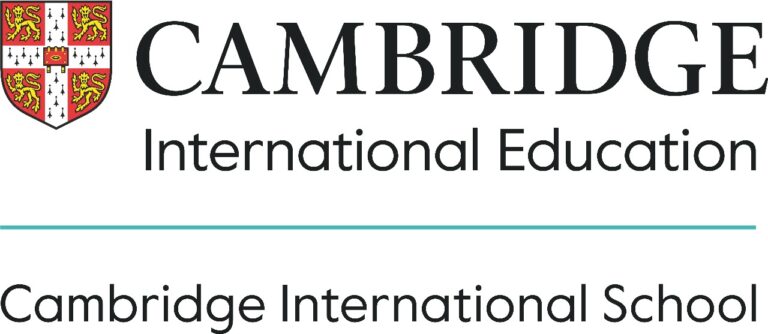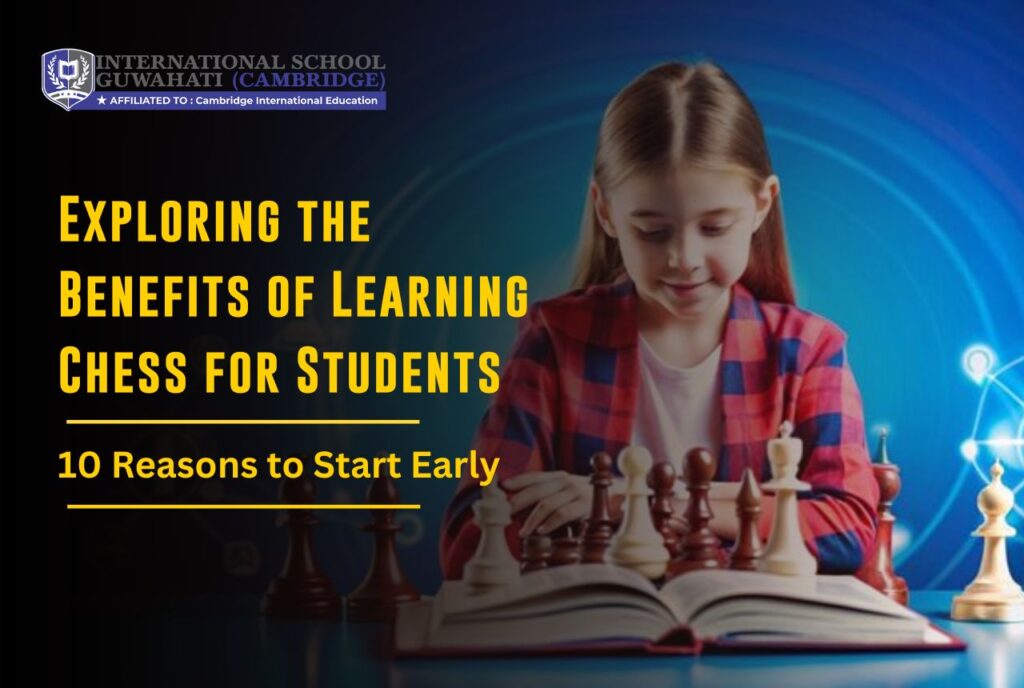![]()
Chess, a timeless game of strategy and skill, is steadily gaining momentum as a powerful educational tool across the globe. Far beyond being just a pastime, chess has found a respected place in school curricula, transforming the way students engage with learning. From the classrooms of Europe to educational institutions in India, chess is becoming a key part of student development programs.
At its core, chess is more than a game—it’s a mental workout that builds focus, intelligence, and character. Whether a student is academically inclined or exploring ways to enhance their learning capacity, chess proves to be a valuable companion. It welcomes players of all ages, abilities, and backgrounds, making it universally accessible.
Thesis statement: The benefits of learning chess for students are both vast and profound—boosting cognitive skills, academic achievement, emotional intelligence, and social development, making it a vital tool in the educational journey of every young learner.
Understanding the Benefits of Learning Chess for Students
Chess is often called a “gymnasium for the mind.” Each move requires deep thinking, prediction, and planning, offering an intense cognitive workout. As students immerse themselves in the game, they activate multiple brain functions—logic, memory, and creativity—all working in tandem.
Scientific research consistently supports chess as an effective educational supplement. Studies in countries like the United States, Germany, and India have shown that students who engage in chess often outperform their peers in core academic subjects, particularly mathematics and reading comprehension. A 2016 study published in Educational Research Review found a positive correlation between chess instruction and improved academic performance.
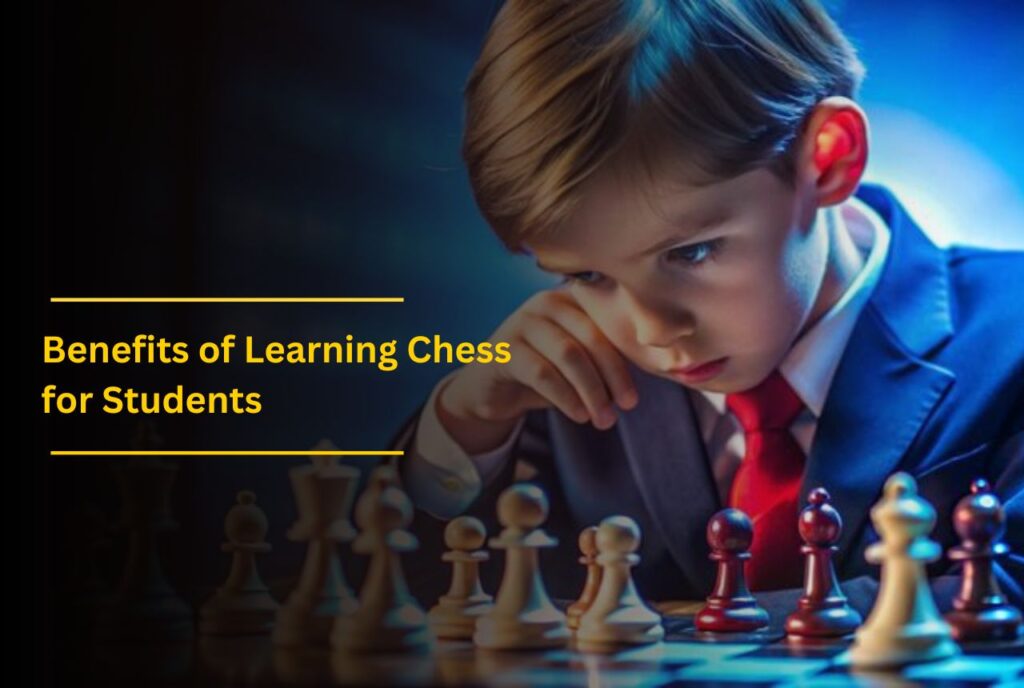
What makes chess especially unique is its ability to activate both hemispheres of the brain. While the left hemisphere processes logic and analytical thought, the right hemisphere brings in spatial awareness and pattern recognition. As a result, chess nurtures a balanced intellectual development in students.
Let’s explore the specific advantages in detail.
10 Amazing Benefits of Chess for Student Development
1. Enhanced Cognitive Development
Chess sharpens critical thinking, improves analytical reasoning, and strengthens logical decision-making. Students learn to visualize outcomes, consider various strategies, and evaluate the best course of action—enhancing their mental agility.
2. Improved Academic Performance
Playing chess helps students recognize patterns and sequences, which directly translates to better performance in subjects like mathematics. Several studies have demonstrated higher test scores among chess-playing students compared to non-players.
3. Boosted Memory and Concentration
From remembering openings to recalling complex tactics, chess requires a high level of memory retention. Regular play helps improve working memory and builds stronger focus, allowing students to concentrate better in academic settings.
4. Development of Decision-Making Skills
Chess teaches young minds how to evaluate multiple possibilities, anticipate outcomes, and make confident decisions. These decision-making skills extend into everyday life and help in building maturity and independence.
5. Enhanced Creativity and Innovation
Chess is not just about rules—it’s about imagination. Crafting unique strategies and thinking outside the box becomes second nature, encouraging students to innovate not only on the board but also in academics and creative pursuits.
6. Improved Patience and Perseverance
Every game of chess demands patience and endurance. Students learn to navigate difficult positions, adapt to setbacks, and persist until the end—building a resilient mindset.
7. Better Social Skills and Sportsmanship
Chess teaches students how to handle victory and defeat gracefully. It nurtures mutual respect, encourages healthy competition, and promotes friendships among peers from various backgrounds.
8. Stress Reduction and Emotional Regulation
Amid the pressure of academics and social dynamics, chess provides a calming and focused outlet. It teaches students to manage emotions, remain composed, and think clearly under pressure.
9. Increased Self-Confidence and Self-Esteem
With every win, every solved puzzle, and every moment of improvement, students experience a boost in confidence. Mastery over the game builds pride and a sense of accomplishment that reflects in other areas of life.
10. Preparation for Future Success
Skills learned through chess—strategic thinking, problem-solving, time management—are highly relevant to 21st-century careers. It fosters executive function skills that are essential for future leadership roles and workplace challenges.
Chess Education at Cambridge International School Guwahati
Cambridge International School in Guwahati, Assam, stands as a pioneer in blending global education with skill-building activities like chess. As a top IGCSE institution, Cambridge integrates chess into its curriculum not just as a co-curricular activity but as a strategic educational tool.
Their structured chess program focuses on cognitive development, strategic thinking, and academic enrichment. Students at Cambridge have represented the school at regional and national chess competitions, achieving notable success. With professional coaching and dedicated sessions, the school ensures every student, regardless of skill level, benefits from this intellectual sport.
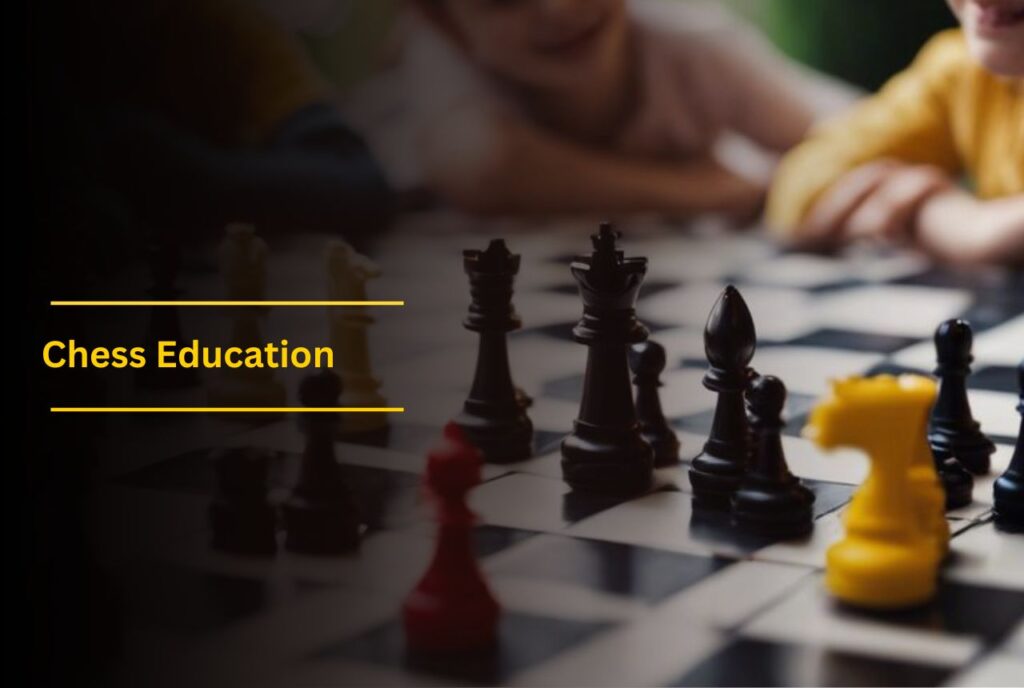
Located in Guwahati—the educational hub and gateway to Northeast India—Cambridge International School continues to set new standards in holistic education by embracing the proven benefits of learning chess for students.
How to Incorporate Chess into Student Learning
Parents and educators can introduce chess in engaging and effective ways. Starting with fun and interactive chess apps or beginner-friendly books helps spark interest. Platforms like Chess.com and Lichess.org offer free learning tools for all ages.
Formal chess classes, either at school or with certified instructors, can significantly deepen a student’s understanding. For younger children, using story-based chess teaching or gamified learning works best to maintain enthusiasm and ensure progress.
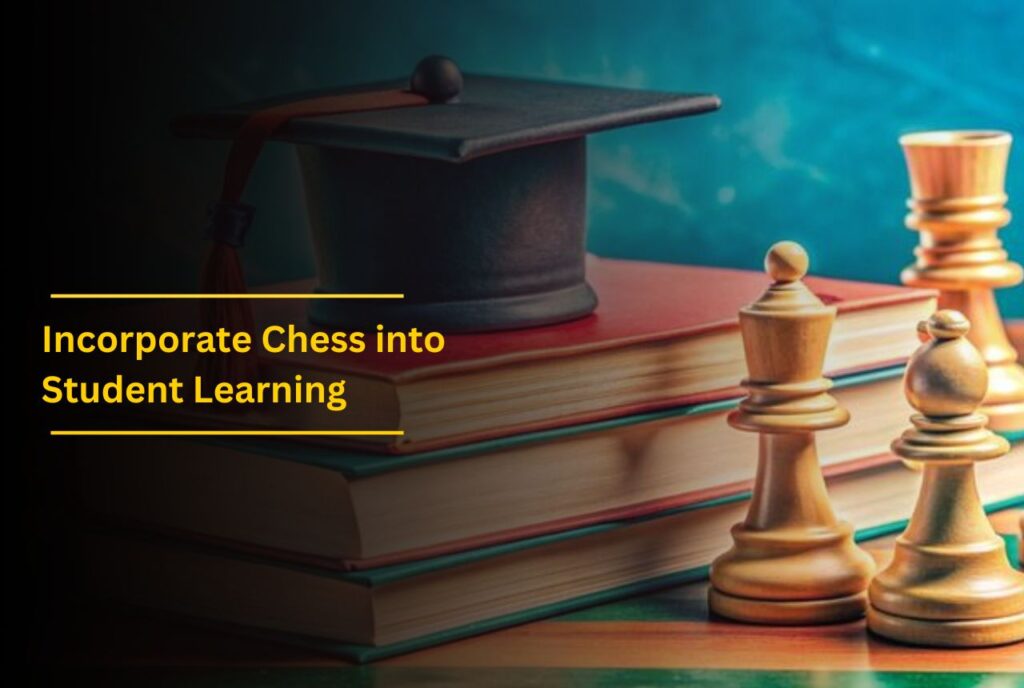
Summing Up: The Lasting Impact of Chess on Student Development
The benefits of learning chess for students go far beyond the game board. From building stronger minds to shaping better individuals, chess offers a world of developmental advantages. As academic institutions and parents seek meaningful ways to empower the next generation, chess emerges as a timeless, effective, and engaging tool.
Whether it’s a beginner’s game at home or a structured school program, incorporating chess into a student’s life can be a game-changing decision. Explore the possibilities—your child’s future might just be a few moves away.

